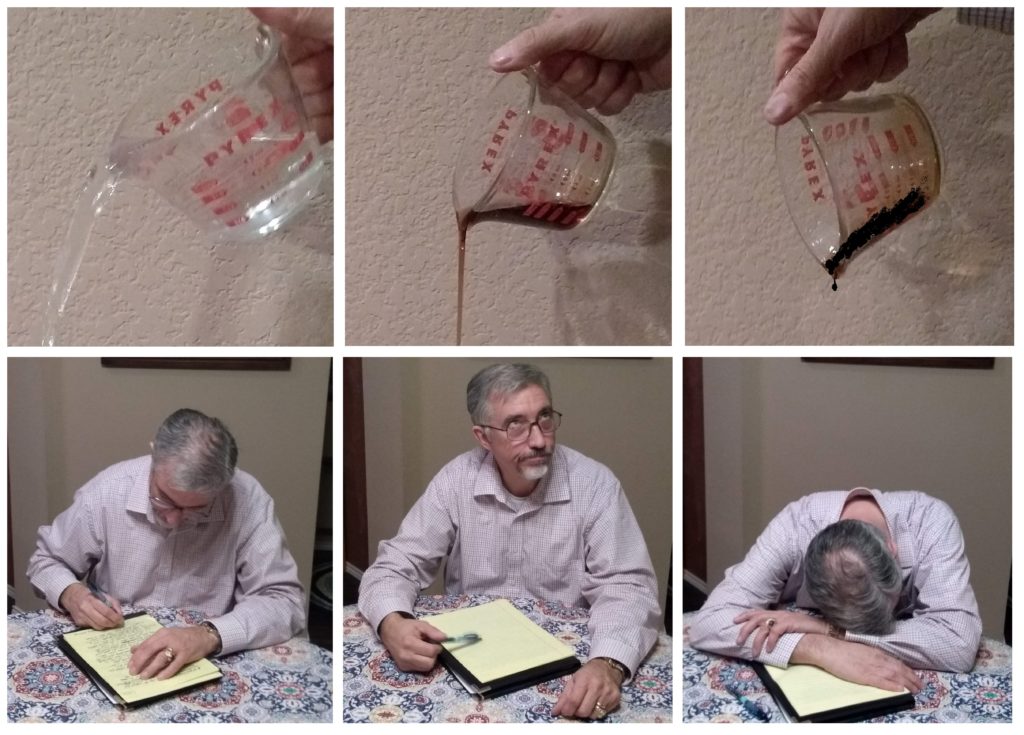Fellow author Andrew Gudgel wrote a great blogpost on December 19, 2019 regarding writing, and I’d like to expand on it.
His post is titled “Water, Molasses, Glass” and you may have to scroll down to get to it. He compares writing to the densities of three substances—water, molasses, and glass.
Sometimes writing comes easily and flows like water. Other times it’s more difficult and flows like thick molasses. What about glass? Well, that’s probably a bad example, since it’s a solid and doesn’t flow at all. The common belief that it’s a slow-moving liquid is false.

A better third substance would be tar, or pitch. That is a slow-flowing (highly viscous) liquid. Very patient researchers at the University of Queensland (Brisbane, Australia) have been watching pitch pour from a funnel since 1930. In those ninety years, nine drops have fallen. Nine drops. Rather a slow way to resurface your driveway.
Let’s get back to the writing comparison.
Water. When writing flows like water, life is good. You know what’s coming next, and nothing’s slowing you down. Without effort, you’re churning out words in a steady stream. People have studied this state of mind and call it ‘Flow.’ I blogged about this phenomenon here. It’s great while it lasts, but it always ends at some point. While you’re in that zone, just go for it.
Molasses. Here’s where writing is harder. You’ve got to force the words out. There are long stretches where you’re just thinking and not producing prose at all. You consider doing something more fun, like, say, cleaning the garage. When in this mental state, I suggest a few strategies:
- First, try to recall why you started this writing project in the first place. Something made you want to write this story, and you were enthused about it then. Try to recapture that passion.
- Second, write an outline, or revisit the one you previously wrote. Jot down where you think the story is going. Or, since you’re stuck for words, create a mind-map of all the possible alternatives for the part you’re stuck on. It could be different plot paths, different scene descriptions, possible character types, or whatever.
- Third, consider writing something else for a while. Trust that your subconscious, your muse, will work on the original problem and come up with a solution.
Tar. At a drop each decade, this is truly writer’s block. I’ve written about writer’s block before, both the diagnosis and the cures. There are several things that might be causing your writer’s block, and you have to pick the right cure for your particular cause.
May your words always flow like water and your rejections and negative reviews flow like tar. That’s the writing wish for you from—
Poseidon’s Scribe
